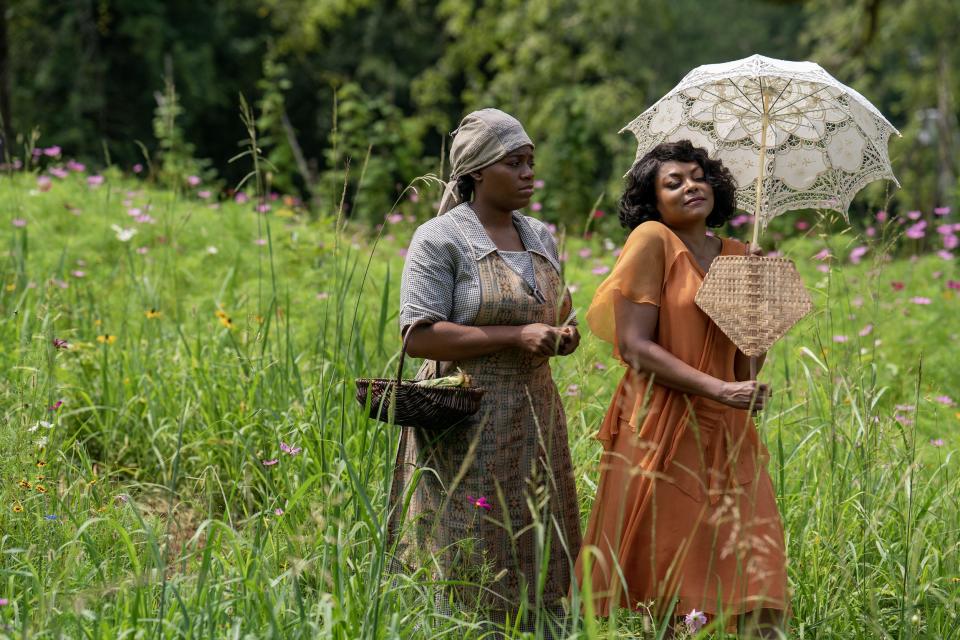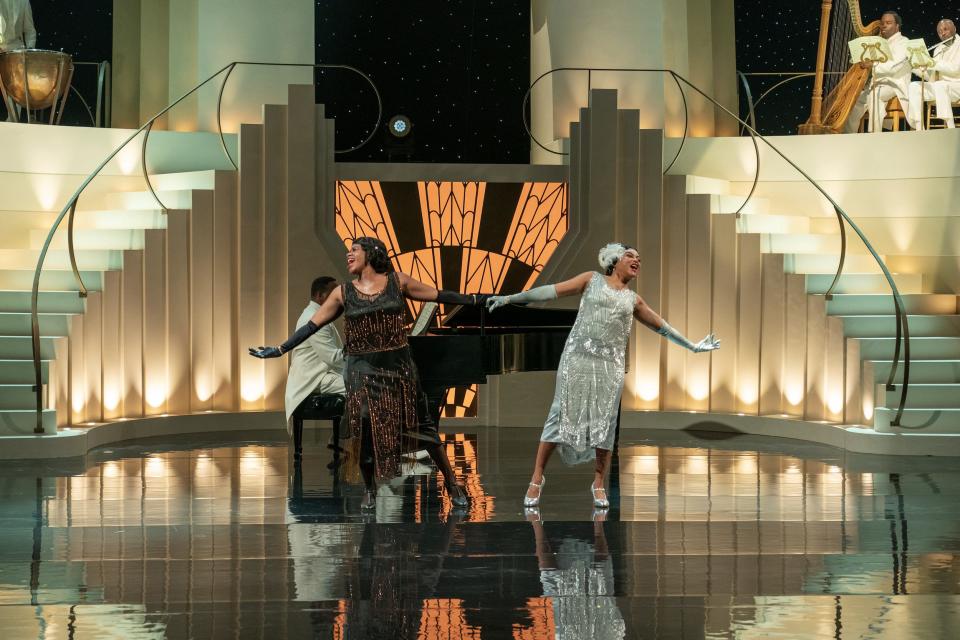'The Color Purple' remake was nearly shut out of the Oscar race — but don't blame it on the movie's negative press
Warner Bros.' "The Color Purple" remake was nearly shut out of Oscar nominations.
The lack of nods probably had little to do with the negative press around the movie's production.
The strike, a late release date, and WB's Oscars push for 'Barbie' likely didn't help its chances.
Margot Robbie and Greta Gerwig were two of the most-discussed snubs of Tuesday's Oscar nominations. But another huge upset of the 96th Academy Awards was the lack of recognition for the remake of "The Color Purple."
Extremely well-reviewed and filled with powerhouse performances from Fantasia Barrino, Taraji P. Henson, and Danielle Brooks, it initially seemed as if Blitz Bazawule's musical remake could achieve the one thing the 1985 original couldn't: an Oscar win.
But after receiving BAFTA and Golden Globe nominations for both Barrino and Brooks and recognition for the cast at the upcoming Screen Actors Guild Awards, the movie was nearly shut out of the 2024 Oscar race.
Warner Bros.' adaptation received one solitary Academy Award nod for Brooks' performance in the category of best supporting actress.
Barrino began trending on social media shortly after the nomination ceremony, with many lamenting her and Henson's snubs in a wider conversation about women who failed to get recognized this year by the Academy.
A segment of the internet wondered whether negative press during the film's promotion may have adversely affected its chances at Oscar gold as voting took place from January 11 to 16.
The Color Purple was going to be snubbed whether Taraji spoke out or not because a lot of the noms were voted on prior. I do think the negative press played a role in the lack of Oscar noms but overall TCP was not going to get its things. pic.twitter.com/QmRHc4SOTs
— kay (@jasimisinclair) January 23, 2024
In multiple interviews, Henson detailed how the cast originally didn't have food and trailers on set and how she fought for fair pay and a driver. Oprah Winfrey, who produced the remake and starred in the original film, stepped in to work her magic and set things right. Viral posts suggested Winfrey and Henson were feuding despite neither ever speaking ill of the other. Winfrey denied any feud allegations.
"In recent years, the Academy has faced ongoing criticism for being out of touch with pop culture and societal trends," Ronn Torossian, the founder of 5WPR, told Business Insider.
"The recent snub of Fantasia Barrino in the nominations is less likely a direct response to the publicity tour for the film, which saw its stars being vocally critical of Hollywood, and more likely another miss by the organization in its failure to honor work that is resonating with viewers today," he added.
Sean Boelman, a Critics' Choice member and voter who expected "The Color Purple" to receive more nods, agreed that the controversy around the press tour probably had little to no impact on the nominations, especially considering Alexander Payne's "The Holdovers" nabbed five nods, including best picture. (In 2020, Rose McGowan accused Payne of statutory rape. Payne has denied the allegations.)
"One of your frontrunners in several categories is directed by somebody who has sexual-assault allegations against them," Boelman said. "For 'The Holdovers' to be a frontrunner in several categories, and for that to be permissible, I don't really know if that controversy over 'The Color Purple' made much of a difference."
The strike, a late release, and WB's push for 'Barbie' probably led to few nods for 'The Color Purple'

Instead of negative press, "The Color Purple," among other contenders, was probably affected by different factors, including the SAG-AFTRA strike and its Christmas release.
"Late-breaking releases are no longer the favorites in the Oscar race," Boelman said. "In the past, even a decade ago, the traditional wisdom was that a film had to come out in November, December, to really be an 'awards movie.'"
Boelman pointed out that many of the recent best-picture winners came out in spring and summer instead of late fall or winter.
2022's winner, "Coda," was an August release, while last year's best picture, "Everything Everywhere All at Once," premiered in March. Even the 2024 frontrunner, "Oppenheimer," famously hit theaters alongside its fellow best-picture nominee "Barbie" on July 21.
"By waiting until December to release 'The Color Purple,' they were late to the conversation," he added. "It's not just 'The Color Purple' that suffered from that. The other movie that really suffered from that, I would think, is 'The Iron Claw.'"
With the strike going from July to November 9, "The Color Purple" cast couldn't promote the movie until about a month out from release.
And then there was a mad dash to try to watch every winter title under the sun in a short time, which probably hurt movies such as "The Color Purple."
Though late releases such as "Poor Things" (December 8) and "American Fiction" (December 15) received Oscar love, "All of Us Strangers" (December 22), "The Iron Claw" (December 22), "Ferrari" (December 25), "Origin" (which had a one-week release in December for eligibility), and "The Color Purple" were largely shut out.

"Normally, we're getting screeners in the mail around the end of October, beginning of November, but this year we didn't start getting a lot of screeners in the mail until right before Thanksgiving," Boelman said, adding, "A lot of voters might not have had the time to really see the movie before the voting."
"If they're waiting until later to screen it and everybody's trying to cram in everything they can watch in that short period of time, some things are going to get left out," he explained.
That may be one reason both the Costume Designers Guild and the Motion Picture Sound Editors shut out "The Color Purple" when their nominations were announced earlier this month.
That recognition could've given vital support in the Oscar race, in which "The Color Purple" and its bold, bright dresses and pants should've been a shoo-in for best costume design.

"Those guilds are normally awards that musicals do very, very well in, and for the film to have not shown up in either of those awards was a bit of a sign that the movie was on its way down in terms of getting Oscar nominations," Boelman said.
Also going against "The Color Purple" was WB's massive support behind "Barbie" as a major Oscar contender, not that anyone could blame the studio. It was a critical success and the highest-grossing movie of 2023.
"Usually, the studios put their time and money behind their best chance," Boelman said. "Every once in a while, you'll have studios that have multiple films in contention, but, generally speaking, there's one that gets most of the attention. The others might get a spare nod here or there. For Warner Bros., their primary focus was understandably on 'Barbie."
"'Barbie' did get a few snubs as well… But, I think that part of this, too, might be the fact that Warner Bros. was campaigning harder for 'Barbie' than they were for 'The Color Purple' or 'Wonka," he said. "You got to pick your best course, and they decided to go with 'Barbie,' and the other two got left in the dust.
Read the original article on Business Insider


